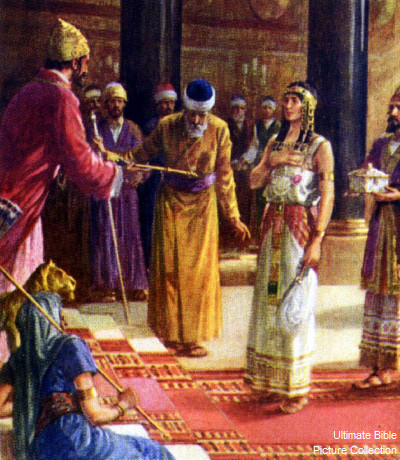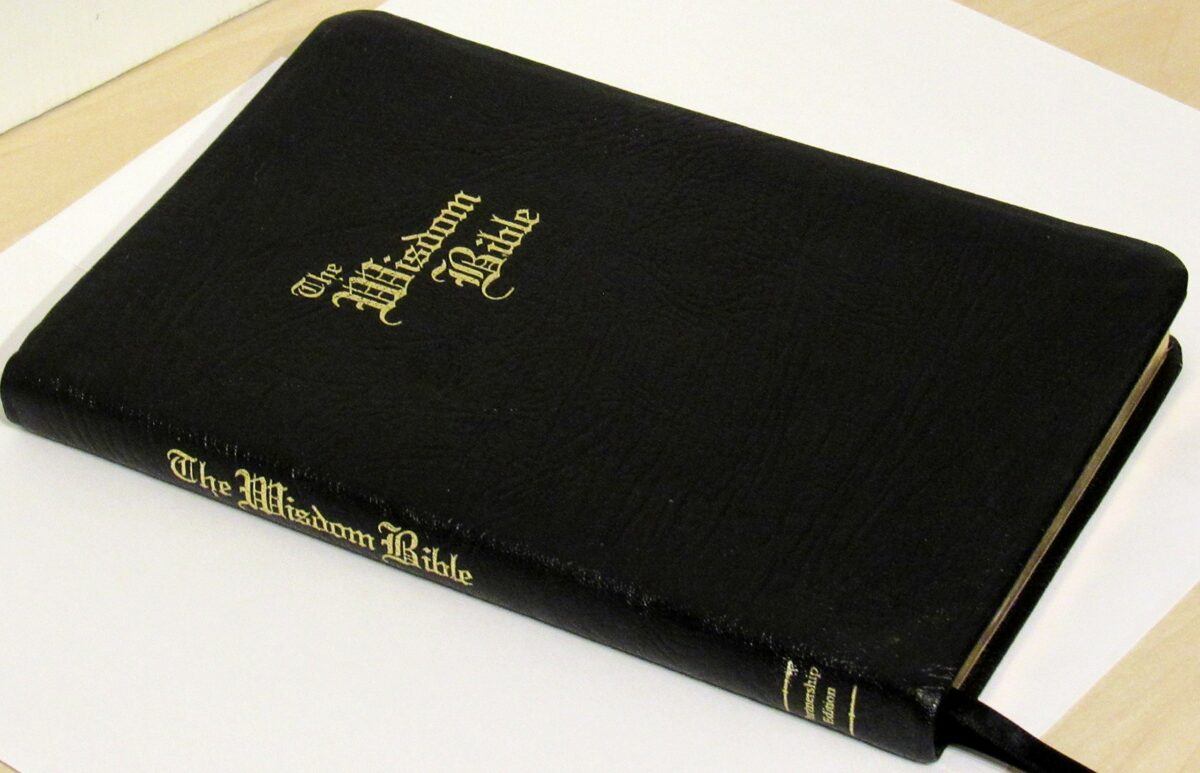Wisdom is one of the most valuable abilities we can acquire. What makes wisdom so valuable? The Bible makes it clear. This article explores wisdom and the Bible.
What is Wisdom?
Wisdom is the ability to reason and act by applying knowledge, experience, understanding, common sense, and insight. Therefore, it is safe to say that wisdom does not come overnight. It takes time to gather knowledge, experience, and understanding to the point of using it successfully.
Wisdom and the Bible
So, what does the Bible say about wisdom? There are 234 Scriptures that address wisdom in the King James translation. The word “wisdom” is first used in the King James Version in Ex 28:3 while God ministers to Moses.
3 And thou shalt speak unto all that are wise hearted, whom I have filled with the spirit of wisdom, that they may make Aaron’s garments to consecrate him, that he may minister unto me in the priest’s office. KJV
So straight away, we see that wisdom comes from God. God gave the workers who produced Aaron’s garments wisdom to carry out their tasks. We all have unique skills, and God desires to fill us with His Spirit so that we will utilize those skills for his glory (1 Cor. 12:4-11, 1 Cor. 14:12).
The Bible also tells us how to get wisdom. James 1:5-7
5 If any of you lacks wisdom, he should ask God, who gives generously to all without finding fault, and it will be given to him. 6 But when he asks, he must believe and not doubt, because he who doubts is like a wave of the sea, blown and tossed by the wind. 7 That man should not think he will receive anything from the Lord; NIV
Since wisdom comes from God, it makes sense that we should ask Him for it. We need wisdom to succeed over trials, and if we lack it, we should ask for it. Moreover, we must have faith and not doubt that it will be given when we ask. Otherwise, we will not receive it.
One of the most outstanding examples of God answering a prayer for wisdom is none other than that of King Solomon. To see this example, we look at 2 Chron. 1:7-12
7 That night God appeared to Solomon and said to him, “Ask for whatever you want me to give you.”
8 Solomon answered God, “You have shown great kindness to David my father and have made me king in his place. 9 Now, Lord God, let your promise to my father David be confirmed, for you have made me king over a people who are as numerous as the dust of the earth. 10 Give me wisdom and knowledge, that I may lead this people, for who is able to govern this great people of yours?”

11 God said to Solomon, “Since this is your heart’s desire and you have not asked for wealth, riches or honor, nor for the death of your enemies, and since you have not asked for a long life but for wisdom and knowledge to govern my people over whom I have made you king, 12 therefore wisdom and knowledge will be given you. And I will also give you wealth, riches and honor, such as no king who was before you ever had, and none after you will have.” NIV
Notice in verse 11 that it was God that made Solomon king. Still today, God sets up and brings down kingdoms.
What we witness here shortly after becoming King of Israel, Solomon received a golden invitation from God: “Ask for whatever you want me to give you.” What a blessing!
Of all the things Solomon could have asked for, he asked for wisdom. Solomon realized that he could not possibly lead the great nation of Israel successfully without, as the Scripture reads: “wisdom and knowledge.”
Wealth and riches would be useless if he were an inefficient king.
However, because Solomon’s heart was in the correct place and did not ask for “wealth, riches, and honor,” God bestowed them upon him even so. Solomon was the wisest king that ever lived before or after him.
Next, we look at the fulfillment of God’s promise to Solomon. 1 Kings 10:4-9
4 When the queen of Sheba saw all the wisdom of Solomon and the palace he had built, 5 the food on his table, the seating of his officials, the attending servants in their robes, his cupbearers, and the burnt offerings he made at the temple of the Lord, she was overwhelmed.

6 She said to the king, “The report I heard in my own country about your achievements and your wisdom is true. 7 But I did not believe these things until I came and saw with my own eyes. Indeed, not even half was told me; in wisdom and wealth you have far exceeded the report I heard. 8 How dhappy your men must be! How happy your officials, who continually stand before you and hear your wisdom! 9 Praise be to the Lord your God, who has delighted in you and placed you on the throne of Israel. Because of the Lord’s eternal love for Israel, he has made you king, to maintain justice and righteousness.” NIV
Again, in verse 9, we have an acknowledgment that it was God who placed Solomon on the throne of Israel.
We also see that God keeps His promises, and His word is true and accurate. As seen earlier, if we lack wisdom, we must ask God for it, and He will grant it to us.
It is crucial to understand that there are two kinds of wisdom; the wisdom of God and the wisdom of the world. These two variations of wisdom are defined in Scripture.
James 3:13-18
13 Who is wise and understanding among you? Let him show it by his good life, by deeds done in the humility that comes from wisdom. 14 But if you harbor bitter envy and selfish ambition in your hearts, do not boast about it or deny the truth. 15 Such “wisdom” does not come down from heaven but is earthly, unspiritual, of the devil. 16 For where you have envy and selfish ambition, there you find disorder and every evil practice.
17 But the wisdom that comes from heaven is first of all pure; then peace-loving, considerate, submissive, full of mercy and good fruit, impartial and sincere. 18 Peacemakers who sow in peace raise a harvest of righteousness. NIV
In this passage, verse 13, we see that the one who is wise leads a good life, does good deeds, and has humility. This humility comes from the wisdom of God.
On the other hand, verses 14-16 describe a different form of wisdom; one that is “earthy” and “unspiritual” and
“from the devil.” one that manifests itself with “bitter envy and selfish ambition” in the heart.
Verse 17 returns to the wisdom from God with a further description.

First, it is “pure.” The Greek word hagnos (hag-nos’) means to be purified from fault and corruption; it means moral purity; to be wholly separated from impurity and wrong-doing and set apart unto God. It is not half-good and half evil but wholly pure and clean.
Purity is first in importance and God’s first thing to a man who seeks true wisdom. A wise teacher, minister, and layman alike is an individual that lives a pure life and teaches that we must be purified before God.
Next, true wisdom is “peace-loving,” which comes from the Greek word irenikos (i-ray-nee-kos’). The word means to bind together, to join, and weave together. It indicates that a wise individual is woven, bound, and joined together: with himself, his fellow man, and God.
Additionally, the wise individual does all he can to keep the peace and make peace where it is disrupted, whether between two individuals or two groups, a family, a community or a nation. A wise individual of true wisdom works to reunite individuals with God and each other.
True wisdom is “gentle.” The Greek word epieikes (ep-ee-i-kace’) is translated as gentleness, forbearance, reasonableness, consideration, agreeableness, courtesy, patience, and softness. It means that there is something superior to mere justice. It is a gracious gentleness. The wise person should be gentle and forbearing when interacting with other people.
True wisdom is “considerate and submissive.” The Greek word eupeithes (yoo-pi-thace’) means reasonable, willing to listen to reason and appeal, being ready to change when wrong. True wisdom is not stubborn or hard.
The wise individual listens to the voice and reasoning of God and other believers, and when he is wrong, he changes his behavior.
True wisdom is ‘full of mercy.” The Greek word eleos (el’-eh-os); means to have feelings of compassion, affection, pity, and kindness. It is a desire to support and caringly pull unto oneself and care for them. Two things are essential to having mercy: seeing a need and the ability to meet that need. God sees our needs and feels for us (Ephes. 2:1-3). Therefore, He acts, and He has mercy on us.
The true wisdom individuals extend themselves to aid those in need, no matter how low they are or how far they have fallen. The individual who lives and demonstrates true wisdom is moved with compassion. So much that he reaches out to help every human being who has a problem and need.
Next, true wisdom is full of good fruits. The Greek word karpos (kar-pos’) literally means plucked fruit representing results—in this case, good results. This means that the wise individual actually reaches out and helps those in trouble. He does not experience compassion and then pushes them out of his mind; he acts to meet needs.
True wisdom is impartial and sincere. The Greek words adiakritos (ad-ee-ak’-ree-tos) and anupokritos (an-oo-pok’-ree-tos) express this, respectively.
Therefore, the wise individual is impartial and shows no bias or discrimination to anyone. Also,
the wise individual is undivided in their convictions and judgments. Knowing the truth, precisely what God’s Word says, and they will not consider false ideas or teachings. There is no hypocrisy by being wholly committed and complete in following and teaching the Word of God.
This description in Scripture is what true wisdom is.
Bottom line: an individual who has the true wisdom from above (God) lives a clean and pure life.
How do we know if we have wisdom?
By now, we know that if we desire true wisdom, we can ask God for it. However, how do we know if we have it? Let’s look at Prov. 9:10
10 The fear of the Lord is the beginning of wisdom: and the knowledge of the holy is understanding.
 Fear of the Lord in this Scripture does not mean that we must be afraid of Him. The Greek word translated as fear is yare’ (yaw-ray’), which means reverence. We must have honor and reverence for God. True wisdom comes from honoring God and knowing truth about Holy matters.
Fear of the Lord in this Scripture does not mean that we must be afraid of Him. The Greek word translated as fear is yare’ (yaw-ray’), which means reverence. We must have honor and reverence for God. True wisdom comes from honoring God and knowing truth about Holy matters.
True wisdom begins with honoring and knowing God. He provides perception into living because He created life. To know God, we must not only know the facts about him; we must have a personal relationship with him. If we genuinely want to be wise, we must know God better and better. The more we know about Him, the wiser we become.
The Bible distinguishes Christ as the “wisdom of God” (1 Cor. 1:24; 2:1-7).
When we accept Jesus as Lord and Savior and honor God through Him, we receive the Holy Spirit, and knowledge and wisdom flows. The result is growth—spiritual growth. Please see the article, How to Grow in Christ on this website for more on spiritual growth.
Please feel free to leave any comments, questions, and concerns below. You will receive a response.
Blessings!

Hi Nathaniel,
Your post was really inspiring. Even I don’t think myself that religious, but spiritual, you gave lots of think about. You actually gave me totally new perspective for entire Wisdom concept. It might actually be more than “learning from the book”, but learning the spirit inside of you. Wow, I need to reread it again. Thank you for your post!
I wish all the best for you.
Markus
Hi Nathaniel,
Your post was really inspiring. Even I don’t think myself that religious, but spiritual, you gave lots of think about. You actually gave me totally new perspective for entire Wisdom concept. It might actually be more than “learning from the book”, but learning the spirit inside of you. Wow, I need to reread it again. Thank you for your post!
I wish all the best for you.
Markus
Thanks Dave for your encouraging words. With God’s help I will continue to post articles that edify the body of Christ.
Have a healthy and prosperous New Year!
I have been neglecting my bible for the longest time now. This article is just a reminder that I should start reading my bible more often. I will be sure to share this article with my friends and family. I am sure that they have also been neglecting their bible.
Reading and studying the Bible together with prayer is the most important thing we can do. The Bible relays so much about God to us and contains so much wisdom. It behooves us to make it an intricate part of our lives.
Thanks for commenting!
I like the old saying that “when the student is ready, the teacher will appear”. I have found this to be true over and over, both for myself and for others in my life. Your post may serve as the inspiration — or the “teacher” — that speaks directly to someone who is in need of those words.
I appreciate your comment Aly.
Thanks for commenting!
Thank You for Sharing
I was trilled to come across your article, I thought it would never happen to get someone to talk about the Bible.
I myself am a beliver in the Bible and I go the a petecostal Chuch in my hometown Port Pirie Souith Australia.
I like how you explained what Wisom is and it is true that Wisdom does not come overnight. It also sayes if you lag Wisdom ask God for it and he will give it to you. We do ofcourse have to belive that God will give it to us.
I like this statement, The fear of the Lord is the beginning of wisdom: and the knowledge of the holy is understanding.
In my liffe everytime I make a big desiccion I ask God to give me wisdon so I can make the right desission.
God Bless You Always
Elke
Hi Elke – I am so happy that the article on wisdom blessed you. Once we have reverence for the Lord, we are on our way down the path of wisdom. May you continue to seek God as you walk through life.
Thanks for commenting!
My brother just bought me a bible for my birthday and offered to help me understand it. I have a friend who is going to help me. I have always been a christian, just not an active one. So it will take some time to learn and grow. I am looking forward to spiritual growth, and I know I will become a better person as well.
Happy belated birthday, Leahrae! Kudos to your brother for giving you a Bible for your birthday. Study it and meditate on it and you will grow and subsequently become a better person.
Thanks for commenting!